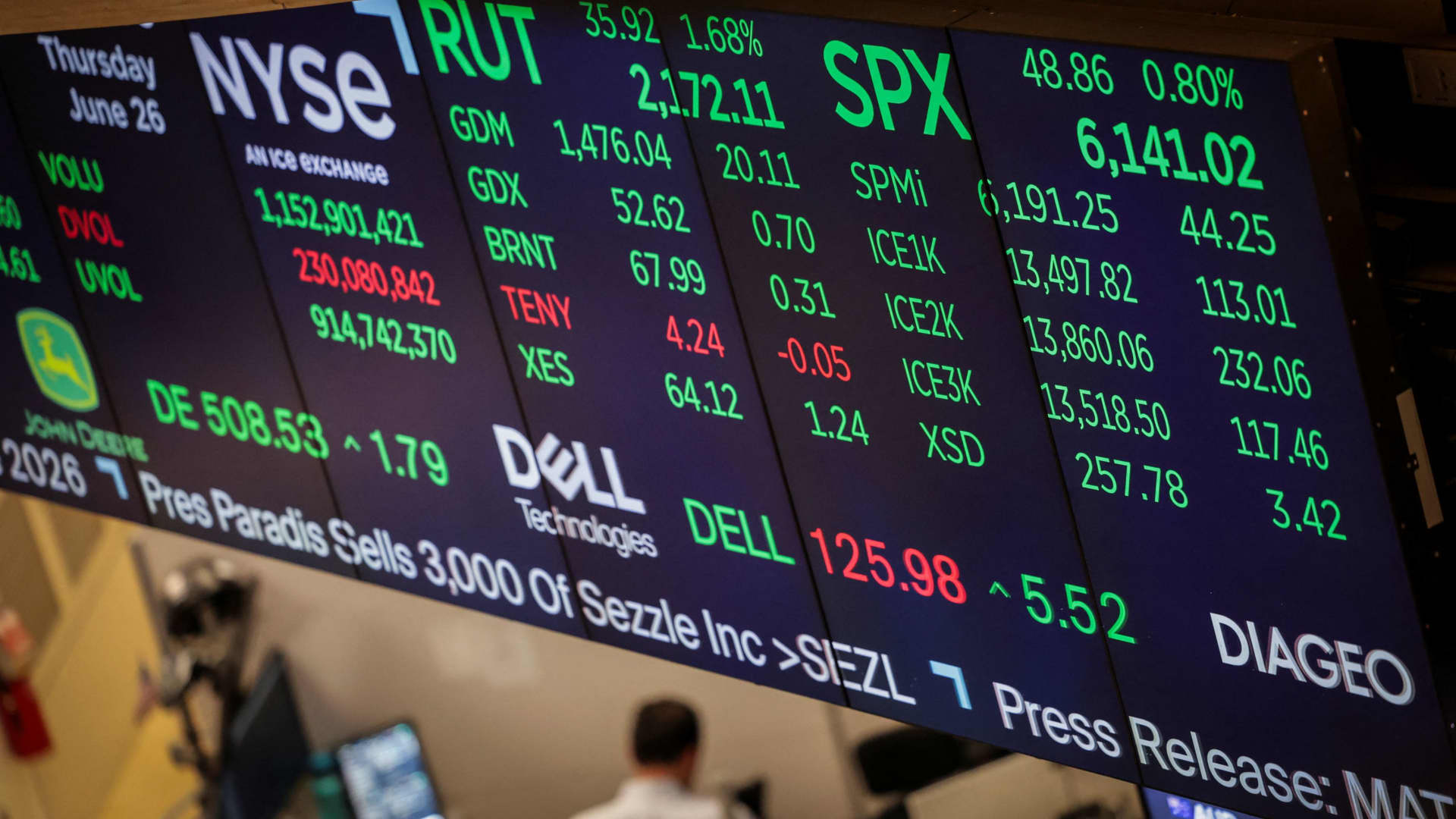European stock exchanges are weighing up the feasibility and demand for 24-hour or out-of-hours trading as retail activity continues to significantly lag that in the U.S. Alex Dalley, head of European cash equities at Cboe Europe — the largest European stock exchange operator — told CNBC they were “closely monitoring” the growing appetite stateside for extended trading hours while “global retail investors look to develop and scale their engagement in the European cash equity markets.” Cboe Global Markets in February announced plans to offer 24-hour trading for U.S. equities five days a week on its Cboe EDGX Equities Exchange. To encourage retail investors’ participation in Europe, Cboe launched a new service earlier this month that cut charges to trade across 18 European markets. The Financial Times reported Sunday that the London Stock Exchange Group was looking into the technological and regulatory implications of extending its own hours. LSEG declined to comment when contacted by CNBC. Other exchanges and stocks brokers across Europe also suggested that European investors are more likely to be interested in trading U.S. equity and linked products in after hours, rather than renewed interest for investing in European companies. SIX Group, which owns the Swiss stock exchange, said it was “examining an extension of trading hours” for structured products, such as ETFs or derivates, after seeing demand from retail investors for U.S. stocks. Meanwhile, Euronext, which runs stock exchanges in Paris, Amsterdam, Brussels, Milan, Lisbon, Dublin and Oslo, said it had not yet seen a demand from its clients for extended trading hours. “Given that there is no consensus among industry participants on buy-side, sell-side and industry associations, Euronext doesn’t see an immediate need to take action to review its overall trading hours,” a Euronext spokesperson said. Deutsche Börse, which runs the Frankfurt Stock Exchange from 8:00 a.m. to 10:00 p.m. local time five days a week for derivates and structured products, echoed Euronext. “If there is demand, we would extend the trading hours further. However, this is currently not the case,” a Deutsche Börse spokesperson told CNBC. ‘Positive for retail involvement’ The U.K.’s largest stock broker Hargreaves Lansdown said that while London Stock Exchange’s move to consider 24 hour trading was “bold,” it was unlikely to improve the attractiveness for listed companies to investors. “This move, still in its infancy, primarily caters to retail investors navigating markets via smartphones rather than liquidity-sensitive institutional giants,” said Matt Britzman, senior equity analyst at Hargreaves Lansdown. “That’s positive for retail involvement but is unlikely to move the dial on the attractiveness of UK vs US markets for companies looking to choose a listing destination.” Britzman also cautioned that extended trading hours brought additional risks to all investors. Lower trading volumes in after hours have often contributed to sharp price moves in stocks. Such moves could lead to margin-calls for investors who may suddenly discover they have an inappropriate exposure. Platforms such as Robinhood are now generating significant U.S. market activity overnight, reflected in opening prices, while the New York Stock Exchange has applied to extend trading to 22 hours a day, and the Nasdaq to 24 hours . Robinhood CEO Vlad Tenev told CNBC earlier this month that cryptocurrency markets had already paved the way for the removal of opening and closing bells. “Customers love it. They love being able to trade on Sundays before the market opens. I think not having access to 24-hour markets will be seen as a disadvantage, probably to some extent it already is,” Tenev said. Investors have long bemoaned weak levels of retail investment in U.K. markets, with the London Stock Exchange itself taking steps to boost participation in recent years, such as removing fees for access to real-time market data. Brits have the lowest percentage of their wealth in investments of any G7 country, at 8%, according to a January report by Aberdeen. However, other European nations also significantly lagged the 33% of personal wealth that U.S. adults were storing in equities and mutual funds. “While it is important we find ways to make investing in European equities as attractive as possible to this community it is worth stating Europe’s trading hours are currently longer than any other jurisdiction,” Cboe Europe’s Dalley told CNBC. “Demand and feedback from global retail investors will be core to any decision to extending European trading hours further.”
Europe stock exchanges mull 24-hour trade to attract retail investors


